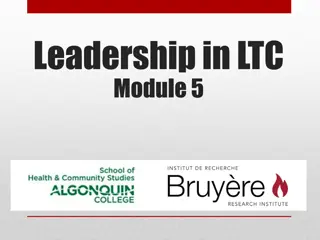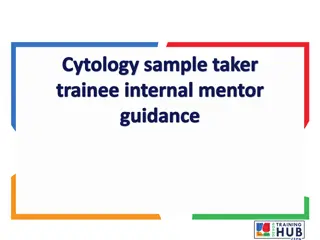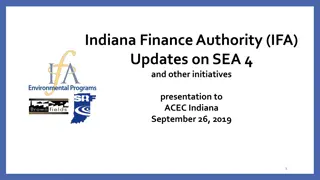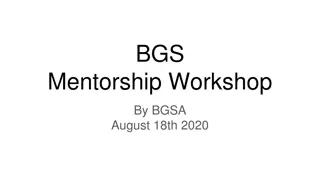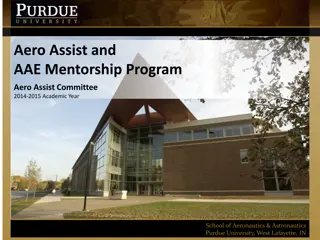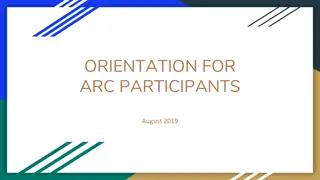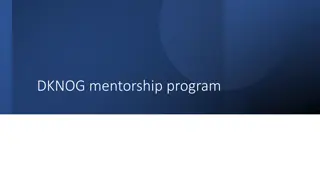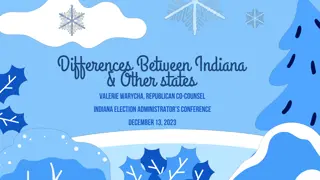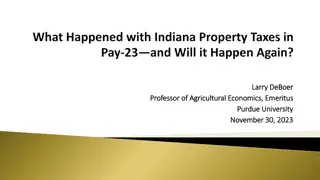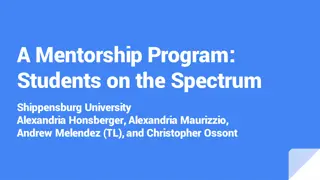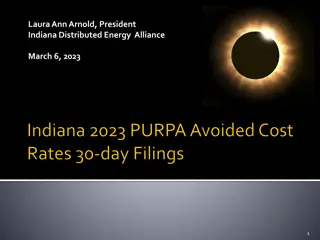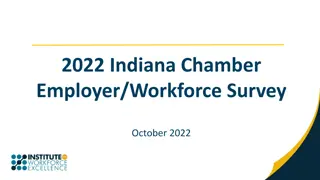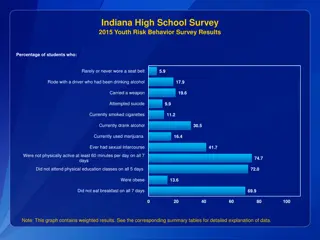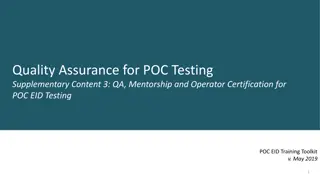Disability Mentorship Program at Indiana State University
The Disability Mentorship Program at Indiana State University aims to support students with disabilities throughout their college journey. It is a voluntary program that pairs students with mentors to provide guidance, leadership skills, and community outreach opportunities. The program encompasses physical, mental, and learning disabilities, offering a safe and educational space for students. Through campus partnerships and various program components, students with disabilities can gain valuable experiences and resources to succeed in college.
Download Presentation

Please find below an Image/Link to download the presentation.
The content on the website is provided AS IS for your information and personal use only. It may not be sold, licensed, or shared on other websites without obtaining consent from the author. Download presentation by click this link. If you encounter any issues during the download, it is possible that the publisher has removed the file from their server.
E N D
Presentation Transcript
School: Indiana State University Team Leader: Team Members: Zachary Lewis Olivia Finley Andrew Haugen Molli Keller
The DMP Program (Disability Mentorship Program)
Program Abstract The DMP Program is designed to aid students with disabilities throughout their college experience. The program is voluntary for both mentors and mentees. Students will be paired up with junior or senior students with disabilities. The goal of the program is for students with disabilities to learn how to manage and be successful throughout college. Students will learn, experience, and gain leadership skills through campus programming, one on one meetings with their mentors, and community outreach.
Target Audience The DMP Program encompasses all disabilities. The program is designed to help students with physical, mental, and learning disabilities. Also, the program is designed to bring education and awareness to the campus community overall. Community outreach is implemented and provided to prospective students with disabilities to promote the program as well as giving students with disabilities a safe and educational space during their college experience.
Campus Partnerships and Roles Disability Services- Will provide guidance for any physical or learning initiatives within the program, as well as provide a graduate student who will be in charge of the facilitation of the program. Residential Life- Will ensure that Residence Halls are accessible to all students and offer means such as support in the form of money or collaboration from the Residence Hall Association, as well as space and activities to support the program. Faculty Member- Will provide guidance for any academically focused initiatives within the program.
Campus Partnerships and Roles Office of Student Activities- Will offer means such as training for programming initiatives, as well as possible support in the form of money or collaboration from student organizations such as the Student Government Association or the Student Activities Board. Mental Health Services- Will provide guidance for any mental health focused initiatives within the program. Others- Throughout the course of the year we would like to incorporate other campus partners and student organizations to assist with our programs.
Program Components Mentorship Program Monthly Programming Panel Socials Career Center Collaboration Life in their Shoes Community Outreach High School Outreach Fundraising
Mentorship Component Mission: The DMP mentorship program s mission is to promote the success of students with a disability. This program helps students expand their potential as individuals, discuss current issues, learn, and connect with a mentor. We will provide students with an opportunity to become involved in safe, inclusive, and welcoming environments. Student mentors will gain valuable experience and skills that will help them as they continue their educational and work experience. Mentor & Mentees Mentors must be student with a disability of junior or senior status and in good academic standing Mentors are expected to go through a training provided by disability services. Mentees are open to any student with a disability currently enrolled in school looking for guidance or assistance navigating college. Relationship between Mentor and Mentees When filling out the application Mentors and Mentees will have to ability to request the amount of times they want to meet a semester. These relationships are to be professional. Mentors are to work with faculty members to promote academics with mentee.
Mentorship Component Continued Application Process and Selection The application will be an online form. Mentors and Mentees will both fill out the form with their interest in which role. The form is open to all applicants. The application can be filled out by others, but in the end the mentor/mentee must opt into this role. All questions in the application are optional to fill out (besides the name and email). Questions will consist of (but not limited): Demographics: Name, Email, Year in School, Gender What they are looking to get out of this program?
Monthly Programming Each month, the DMP Program will hold a program on campus. The programs are designed to bring disability awareness to campus, build a community in and outside of the mentorship community, and promote and inspire other students to join the program. The first semester the programs will consist of: A panel discussing disability awareness on campus. The panel can be composed of students, staff, and faculty that are educated and passionate about the topic. Students will be able to ask questions and gain insight about all disabilities. Socials will be held to help build a sense of community among the mentorship program and other students, staff, and faculty throughout the campus community.
Monthly Programming Continued A Walk in their Life This program will include activities that simulate having different disabilities. Activities Physical Disabilities: This will allow students to understand what it s like to have a physical disability. The different activities will be surrounding hearing impairment, wheelchairs, and seeing impairment. Mental Disabilities: The different activities would be surrounding different mental health disorders, such as anxiety, schizophrenia and depression. Learning Disabilities: The different activities would be surrounding learning disabilities, such as dyslexia.
Monthly Programming Continued Professional Development We would like to collaborate with the Career Center to present some activities that would allow students to work with through their disabilities and be successful in the job search. The Career Center would talk about how to navigate an interview with a disability, as well as basic skills such as resume and networking.
Research Other various institutions throughout the country have created mentorship programs for students with disabilities. Institutions such as Lehigh University, California State University, University of Illinois, are among many other implemented mentorship programs to benefit students of disabilities with amazing success. At Lehigh University they saw success in their very first year of their program. Only ten first year students participated in their first year, the mean GPA was a 3.08 with a 100% retention rate after the first semester, when compared to the fourteen first year nonparticipants who obtained only a 1.94 mean GPA and a 78% retention rate.
Community Outreach High School We want to show high school students with disabilities that they will be supported at college. We want our Mentors and Mentees to have leadership opportunities because of this program. The Mentors and Mentees will have the opportunity to reach out to current high school students and share their story. Their story can go through the challenges and success they had as a student with disability and that they too can go to college and be successful if that s what they want to do. Fundraising We would like to provide opportunities throughout the year to raise money to local charities working with students with disabilities. These efforts will give back to the community.
Budget and Finance The DMP program will rely on campus partners over the course of the first year to sustain these events, in hopes that as the program advances an office will be able to take over the management of this program. The first year we would need funds for: Panels-being able to have food or snacks Socials-fun food to draw people into this social A Walk in their Life- anything that partners will need for their simulations Other programming initiatives for the spring semester
Assessment The goal of the DMP Program is for students to grow personally, socially, and academically as well integration into the campus community. Mentorship Program: Online survey and informal conversations between the mentor/mentees about the initiative, application, and selection process. Monthly Programming: After each program we will have either a paper or online survey going over the event. We will also provide times for attendees to include what they would like to see in the future. Community Outreach
References https://www.naspa.org/images/uploads/main/Bronze1179.pdf


